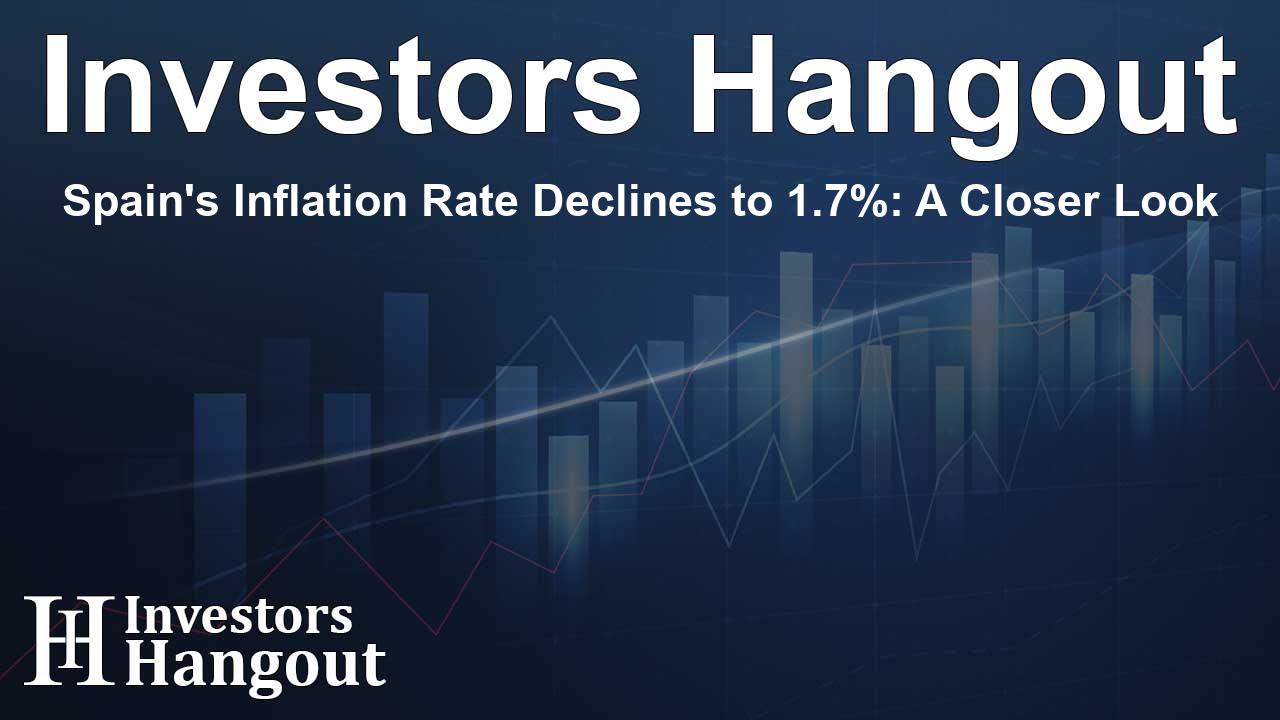Spain's Inflation Rate Declines to 1.7%: A Closer Look

Spain's Inflation Rate Experiences Significant Decrease
Recent data indicates that Spain's EU-harmonised inflation has dropped to 1.7% year-over-year as of September. This marks a notable decline from 2.4% observed during the previous month of August. The final statistics were released by the National Statistics Institute (INE), highlighting an important trend in the country's economic landscape.
Insights from the National Statistics Institute
The 12-month inflation rate of 1.7% aligns perfectly with the flash estimate that INE provided two weeks prior, further supported by analysts' expectations gathered in a poll conducted by Reuters. Such consistency in these figures suggests a more stable inflationary environment for the upcoming months.
Core Inflation Trends
When examining core inflation—essentially factoring out volatile items such as fresh food and energy—the rate showed a decrease to 2.4% for the 12 months leading up to September, down from 2.7% the previous month. This shift highlights a stabilizing effect on essential consumer goods, which can be encouraging for household budgets.
National Consumer Prices Analysis
Spanish national consumer prices have also witnessed a decline, settling at 1.5% for the year ending in September. This is a decrease in comparison to the inflation rate of 2.3% recorded in August. The final reading once again confirmed the earlier flash estimate from INE, reinforcing the idea that analysts had a sound grasp on the current economic conditions.
The Broader Economic Implications
With these inflation figures painting a clearer picture of Spain's economic health, many wonder what implications these changes might have. A lower inflation rate can translate into increased consumer spending power, which can be a vital component in stimulating the economy. As the Spanish economy adapts to these shifts, it may also influence monetary policy in the region.
Looking Ahead: Economic Forecasts
As we move forward, it will be essential to monitor the trajectory of inflation and the resulting consumer behavior. The data emerging from INE can provide key insights not just for policymakers but also for businesses and consumers alike. The steady decrease in inflation points toward a possible period of economic adjustment that will require careful observation.
Frequently Asked Questions
What is the current inflation rate in Spain?
As of September, Spain's inflation rate stands at 1.7%, a decrease from 2.4% in August.
How does core inflation differ from overall inflation?
Core inflation excludes volatile items like fresh food and energy to provide a clearer view of price stability in essential goods.
What are the implications of declining inflation?
Declining inflation can enhance consumer purchasing power and may influence economic policy decisions to foster growth.
How does the inflation rate affect consumers directly?
A lower inflation rate typically means that consumers experience less pressure on their budgets, allowing for better purchase decisions.
Where can I find more information on Spain's economic data?
For detailed and updated economic data, you can refer to the National Statistics Institute (INE) of Spain.
About The Author
Contact Lucas Young privately here. Or send an email with ATTN: Lucas Young as the subject to contact@investorshangout.com.
About Investors Hangout
Investors Hangout is a leading online stock forum for financial discussion and learning, offering a wide range of free tools and resources. It draws in traders of all levels, who exchange market knowledge, investigate trading tactics, and keep an eye on industry developments in real time. Featuring financial articles, stock message boards, quotes, charts, company profiles, and live news updates. Through cooperative learning and a wealth of informational resources, it helps users from novices creating their first portfolios to experts honing their techniques. Join Investors Hangout today: https://investorshangout.com/
The content of this article is based on factual, publicly available information and does not represent legal, financial, or investment advice. Investors Hangout does not offer financial advice, and the author is not a licensed financial advisor. Consult a qualified advisor before making any financial or investment decisions based on this article. This article should not be considered advice to purchase, sell, or hold any securities or other investments. If any of the material provided here is inaccurate, please contact us for corrections.
